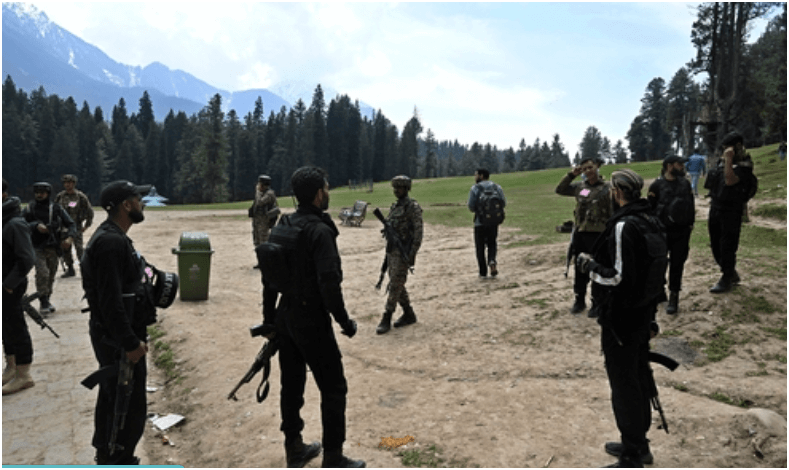Indian government has banned 16 Pakistani YouTube channels for disseminating provocative and communally sensitive content.
The attack on April 22, 2025, resulted in the deaths of 26 individuals, including tourists and a local resident. In response, the Ministry of Home Affairs recommended the ban, which was promptly enforced by the Ministry of Information and Broadcasting.
Among the banned channels are prominent Pakistani media outlets such as Geo News, Dawn News, ARY News, Samaa TV, and Bol News. Additionally, individual content creators including Muneeb Farooq, Umar Cheema, Asma Shirazi, and Irshad Bhatti have also been affected. Collectively, these channels boast over 63 million subscribers.
The government’s action is based on the assertion that these channels were involved in spreading false and misleading narratives, as well as content that could incite communal tensions. This decision comes amid heightened tensions between India and Pakistan following the Pahalgam attack.
In addition to the YouTube bans, the Indian government has taken further steps in response to the attack. These measures include suspending the Indus Waters Treaty, closing the Attari border crossing, and expelling Pakistani military attaches. The government has also formally protested the BBC’s use of the term “militants” instead of “terrorists” in its coverage of the attack.
The Pahalgam terror attack has been described as one of the deadliest in the region since the 2019 Pulwama strike. The National Investigation Agency (NIA)has intensified its search for evidence, questioning eyewitnesses and conducting operations to neutralize the terrorists involved.
The Indian government’s actions reflect a broader strategy to counter misinformation and uphold national security in the face of cross-border terrorism. By targeting platforms that spread provocative content and false narratives, authorities aim to prevent the escalation of communal tensions and ensure accurate information dissemination. These measures underscore India’s commitment to combating terrorism and maintaining internal stability.
As tensions between India and Pakistan continue to escalate, the international community watches closely. The Indian government’s decisive actions following the Pahalgam attack highlight the challenges of addressing cross-border terrorism and the importance of responsible media reporting in maintaining peace and security.
The decision to ban 16 Pakistani YouTube channels is part of a broader strategy by the Indian government to curb the spread of misinformation that has the potential to inflame public sentiment and escalate communal tensions. In recent years, misinformation has become an increasingly significant challenge, with various groups using online platforms to spread false narratives and fuel unrest. The digital space, particularly social media platforms like YouTube, has emerged as a powerful tool for influencing public opinion and shaping political discourse. The government’s crackdown reflects its growing concern over the role that digital media plays in the context of national security and social harmony.
The 16 banned YouTube channels were found to be particularly problematic due to their dissemination of content that both distorts facts and paints an inaccurate picture of the situation in Jammu and Kashmir. In the aftermath of the Pahalgam attack, these channels were accused of spreading false reports, including inflammatory statements about India’s security forces, portraying them in a negative light, and presenting the attack as part of a larger conspiracy orchestrated by the Indian government. The spread of such content not only misled the public but also fueled anti-India sentiments in Pakistan and other regions, making it a matter of serious concern for Indian authorities.
Pakistan has long been accused of harboring and supporting militant groups that target India, and the Pahalgam attack, which occurred in a region already fraught with tension, served as a grim reminder of the ongoing volatility in the region. The government’s move to ban the Pakistani channels is seen as an effort to prevent such content from escalating tensions further, ensuring that narratives that undermine national security or misrepresent events are not amplified on a global platform.
Stay informed with the latest updates – click here .

